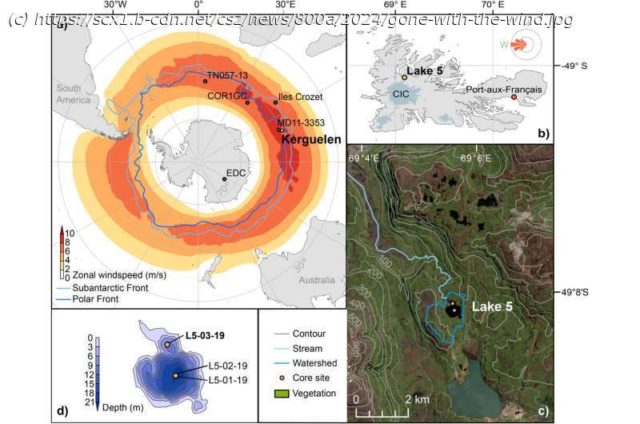In Bergen, Maaike Zwier analyzed pollen in sediment cores from lakes on Kerguelen Islands and South Georgia. In this way, she can say something about the local climate going back almost 12,000 years. The study is published in the journal Quaternary Science Reviews.
In Bergen, Maaike Zwier analyzed pollen in sediment cores from lakes on Kerguelen Islands and South Georgia. In this way, she can say something about the local climate going back almost 12,000 years. The study is published in the journal Quaternary Science Reviews.
„I used to be a beekeeper back home. As a beekeeper you work a lot with pollen in the context of honey. I combined my hobby with work throughout my studies, including in my most recent paper“, says Zwier, who is from the Netherlands.
„I knew the pollen from local plant species from the sub-Antarctic Island from earlier research, but I had to learn about a lot of new ones, like the pollen from African species. I got some help from the Nelson Mandela University in South Africa. It was really fun to find out which species it was every time I found a new type of pollen grain. Together we were able to recognize most of them“, says Zwier.
In September, she successfully defended her thesis „Winds of change: A multi-proxy approach to constrain Holocene climate and wind dynamics in the sub-Antarctic“ at the Department of Biology, UiB and the Bjerknes Centre.






